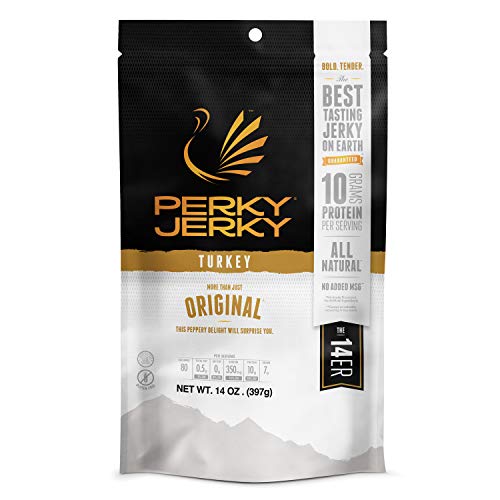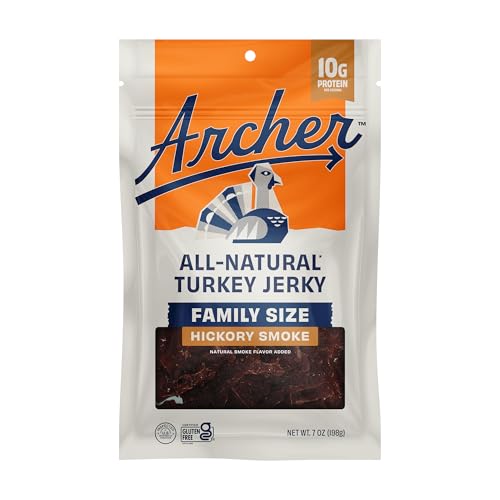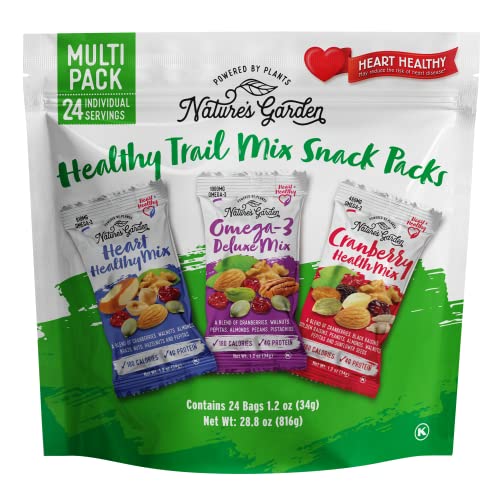When it comes to snacking, jerky is a go-to choice for many of us. It’s portable, packed with protein, and perfect for those on-the-go moments. But if you’re trying to make healthier choices, you might find yourself wondering: is turkey jerky really better for you than beef jerky?
Both options have their merits, but they also come with their own set of nutritional pros and cons. I’ve often found myself reaching for one over the other, depending on my mood and health goals. Let’s dive into the delicious world of jerky and explore which option might be the healthier pick for your snacking needs.
Overview of Jerky Types
Jerky comes in various forms, but I focus on the two most popular: turkey jerky and beef jerky. Both provide a savory, protein-packed snack choice. Understanding their differences helps in making informed snack decisions.
Turkey Jerky
Turkey jerky offers a leaner protein option, typically containing fewer calories and less fat than its beef counterpart. A 1-ounce serving of turkey jerky usually has about 70-80 calories, 1-2 grams of fat, and 11-14 grams of protein. This makes it appealing for those monitoring caloric intake or seeking a lower-fat protein source. Some brands feature added spices and flavors, presenting a delightful range of tastes while often keeping sodium levels lower than beef jerky.
Beef Jerky
Beef jerky is richer in flavor and generally has a more robust texture. A 1-ounce serving often contains around 70-130 calories, 6-9 grams of fat, and 10-15 grams of protein, depending on the cut of meat used. While it provides essential nutrients like iron and zinc, many beef jerky options contain higher sodium levels due to the preservation process. For those seeking a more satiating and heartier snack, beef jerky delivers.
Comparative Highlights
- Calories: Turkey jerkies usually contain fewer calories.
- Fat Content: Turkey jerky is often lower in fat.
- Protein: Both options offer similar protein levels.
- Sodium: Beef varieties generally have higher sodium levels.
Both turkey and beef jerky cater to different snacking preferences and nutritional needs. By understanding their unique characteristics, I can better select the right jerky for any health goal or taste desire.
Nutritional Comparison
When it comes to choosing between turkey jerky and beef jerky, understanding their nutritional profiles is essential. I find this comparison quite fascinating, as both types offer unique benefits depending on your health and snacking goals.
Protein Content
Turkey jerky typically boasts a higher protein content than beef jerky. For instance, a 1-ounce serving of turkey jerky contains about 11 grams of protein, while the same serving of beef jerky has approximately 9 grams. The extra protein in turkey jerky can be particularly beneficial for those looking to boost their intake without consuming excessive calories. Both options provide substantial protein that supports muscle repair and provides sustained energy.
Fat Content
Turkey jerky usually has lower fat content compared to beef jerky. A 1-ounce serving of turkey jerky contains about 1 gram of fat, while beef jerky can contain around 7 grams. Choosing turkey jerky can help manage fat intake. That lower fat percentage makes turkey jerky a great option if you’re watching your overall fat consumption. Even so, certain brands of beef jerky offer lean options, so it’s essential to read labels.
Caloric Differences
Caloric content varies between the two jerky types. Typically, a 1-ounce serving of turkey jerky has around 70–80 calories, while beef jerky ranges from 90–150 calories based on the cut and preparation. Opting for turkey jerky provides a more caloric-friendly snack that satisfies hunger without packing in too many calories. This makes turkey jerky a smart choice for those tracking their caloric intake.
By comparing protein, fat, and calories, you can make an informed decision that aligns with your healthy snacking goals. Both turkey and beef jerky offer simple yet satisfying options, so choose one that fits your lifestyle best.
Health Benefits of Turkey Jerky
Turkey jerky boasts several health benefits that make it a smart choice for nutritious snacking. It provides a delicious way to fuel my body without the guilt.
Lower Fat Levels
Turkey jerky stands out for its lower fat content. With approximately 1 gram of fat per ounce, it supports weight management while satisfying my craving for savory snacks. In comparison, beef jerky often carries around 7 grams of fat per ounce, which can add unnecessary calories. Choosing turkey jerky helps me enjoy a protein-rich snack that aligns with my healthy eating goals.
Rich in Vitamins
Turkey jerky is rich in essential vitamins, particularly B vitamins like niacin and riboflavin. These vitamins play a vital role in energy metabolism and overall health, helping my body function at its best. They support brain function and contribute to healthy skin, making turkey jerky a nutrient-dense option. With our busy lifestyles, getting these important nutrients easily through healthy snacks like turkey jerky makes perfect sense.
Turkey jerky’s combination of lower fat and rich vitamin content creates a powerhouse snack option that fits right into my healthy snacking philosophy.
Health Benefits of Beef Jerky
Beef jerky offers several notable health benefits that make it a popular choice among snack enthusiasts. With its rich flavor and protein density, it can complement a balanced diet.
Higher Iron Content
Beef jerky contains higher iron levels than many other protein snacks. One serving typically provides about 1.5 mg of iron, contributing to your daily needs. Iron plays a crucial role in oxygen transportation in the blood, supporting overall energy levels. For those focusing on endurance or active lifestyles, this nutrient becomes increasingly important.
Better Satiety
The high protein content in beef jerky enhances feelings of satiety. Each ounce offers around 9 grams of protein, helping curb hunger effectively. Incorporating protein-rich snacks like beef jerky between meals can keep cravings at bay. By choosing beef jerky, I often feel satisfied longer, making it easier to stick to healthy eating habits without constant snacking.
Flavor and Texture Comparison
When it comes to jerky, flavor and texture make all the difference. Both turkey and beef jerky offer distinct experiences that cater to different palates and culinary applications.
Taste Preferences
I often find that turkey jerky presents a milder flavor than beef jerky. Turkey’s subtle taste allows for a variety of seasoning options, such as teriyaki or barbecue, enhancing the overall flavor profile. Beef jerky, on the other hand, boasts a richer and more robust taste that often carries a smoky essence. This intensity makes beef jerky a favorite for those craving a bold, hearty snack. Both types provide unique taste experiences that can satisfy your cravings and complement different snacking occasions.
Culinary Uses
Turkey jerky excels in versatile culinary applications. I enjoy adding it to salads for a savory crunch or using it in wraps for an extra protein boost. Its lighter flavor pairs well with fresh ingredients. Beef jerky shines in hearty dishes, often working great in stews or as an addition to charcuterie boards. I also appreciate how both options can serve as a convenient protein source for camping trips or hikes. Their portability reinforces their roles as excellent snacking choices in various settings.
Conclusion
Choosing between turkey jerky and beef jerky really comes down to personal preference and health goals. If you’re looking for a leaner option that’s lower in calories and fat, turkey jerky might be your go-to. On the other hand, if you crave a richer flavor and a heartier texture, beef jerky could be the perfect fit.
Both snacks offer unique benefits that cater to different needs. I enjoy having both on hand for different occasions. Whether I’m reaching for turkey jerky for a lighter snack or beef jerky for something more filling, I appreciate the variety they bring to my snacking routine. Ultimately, it’s all about what fits your lifestyle and satisfies your cravings. Happy snacking!












